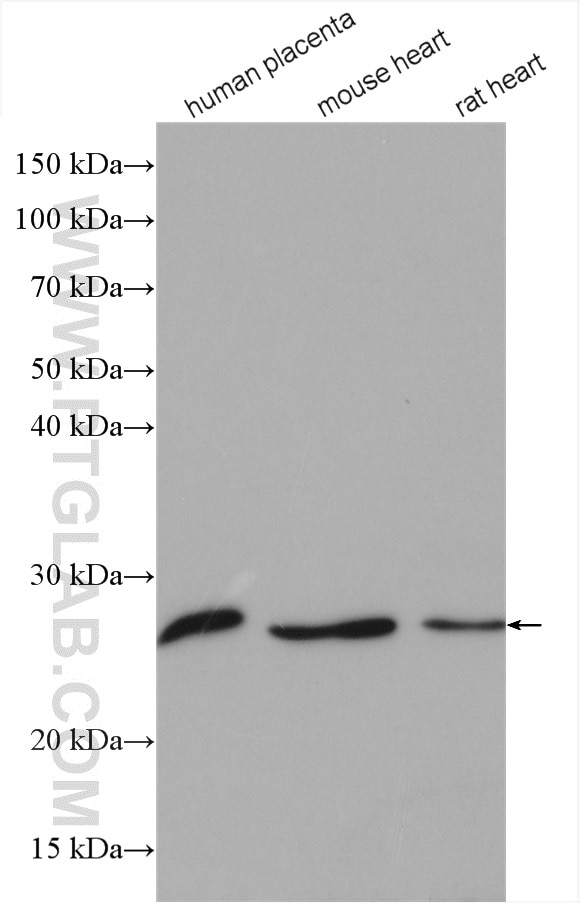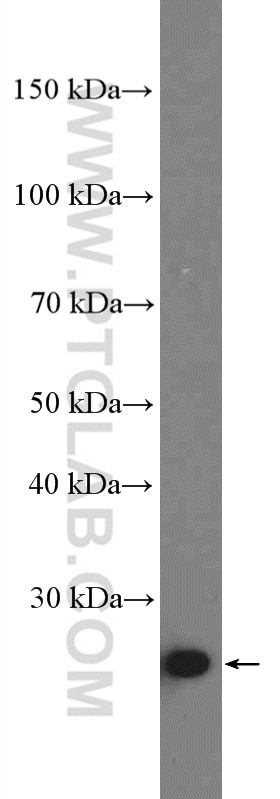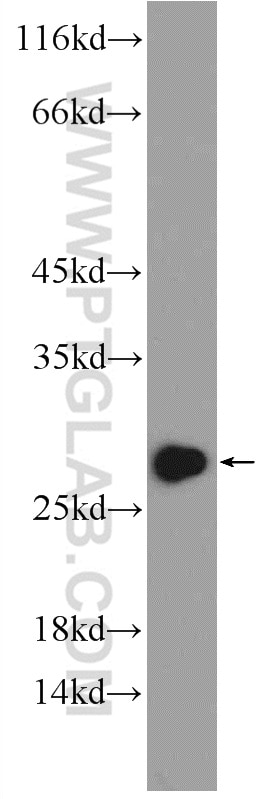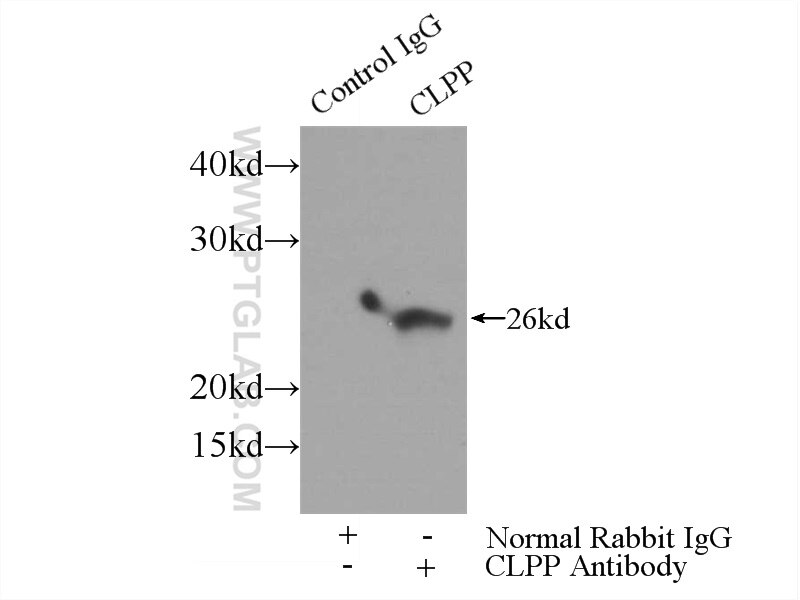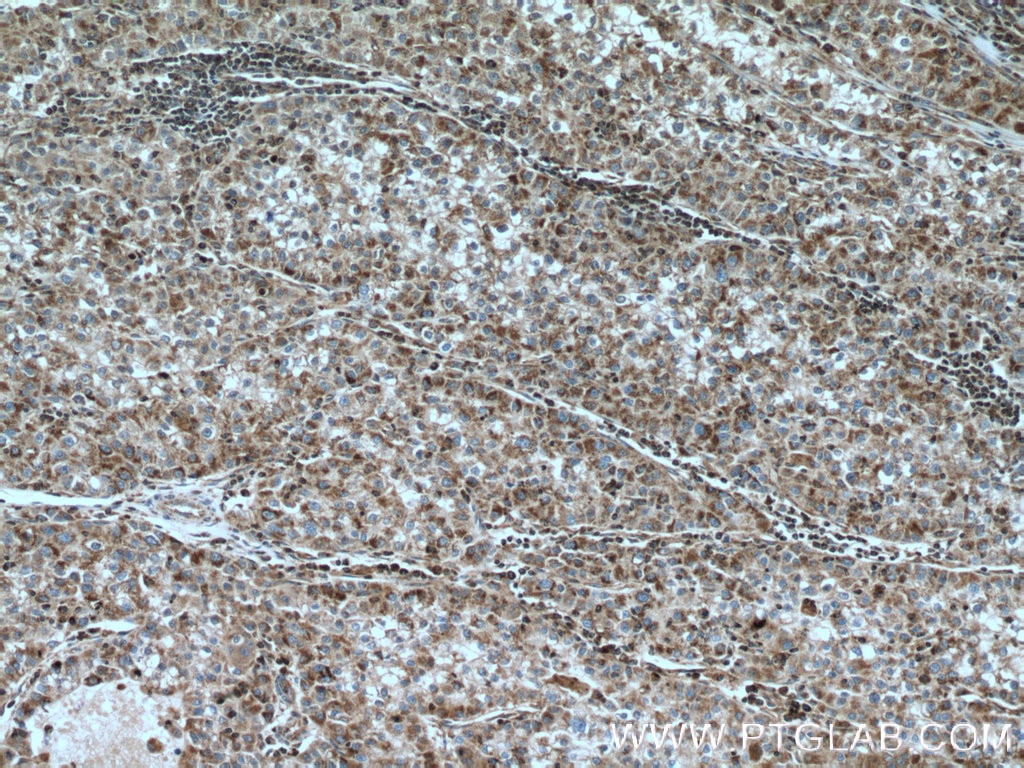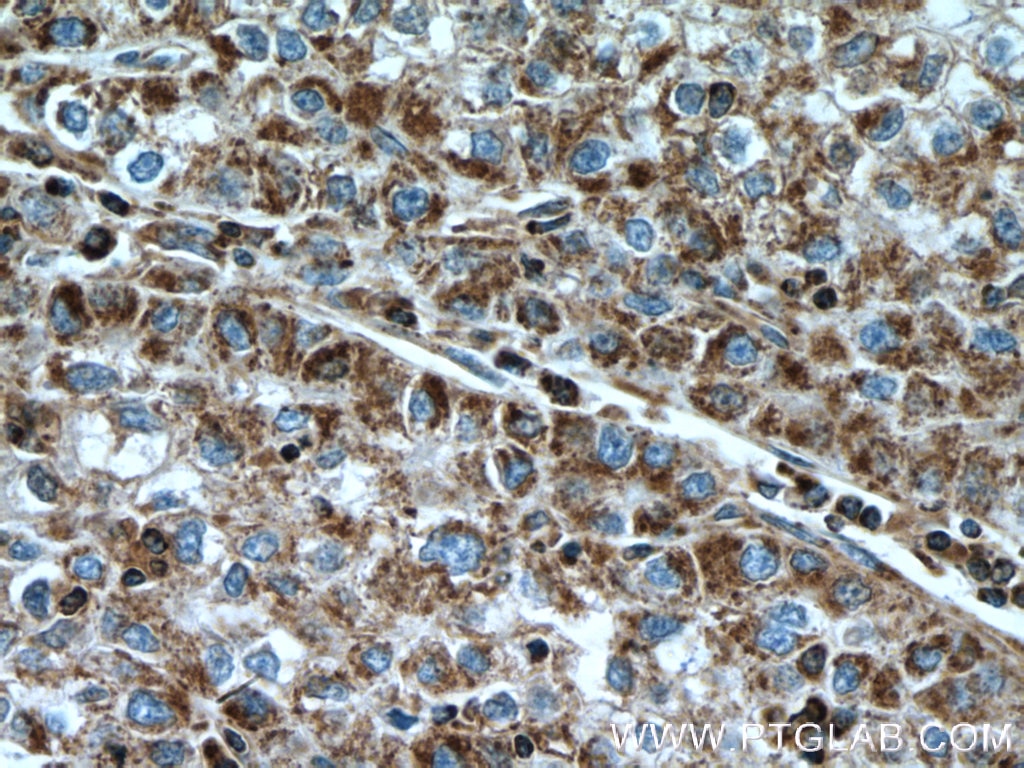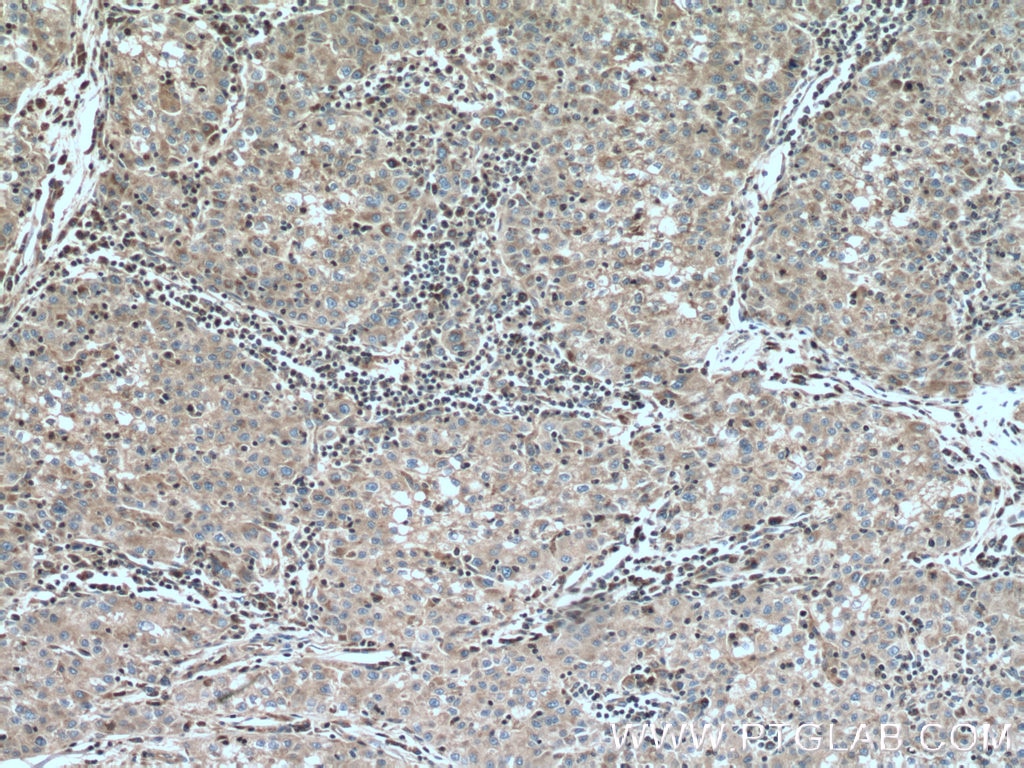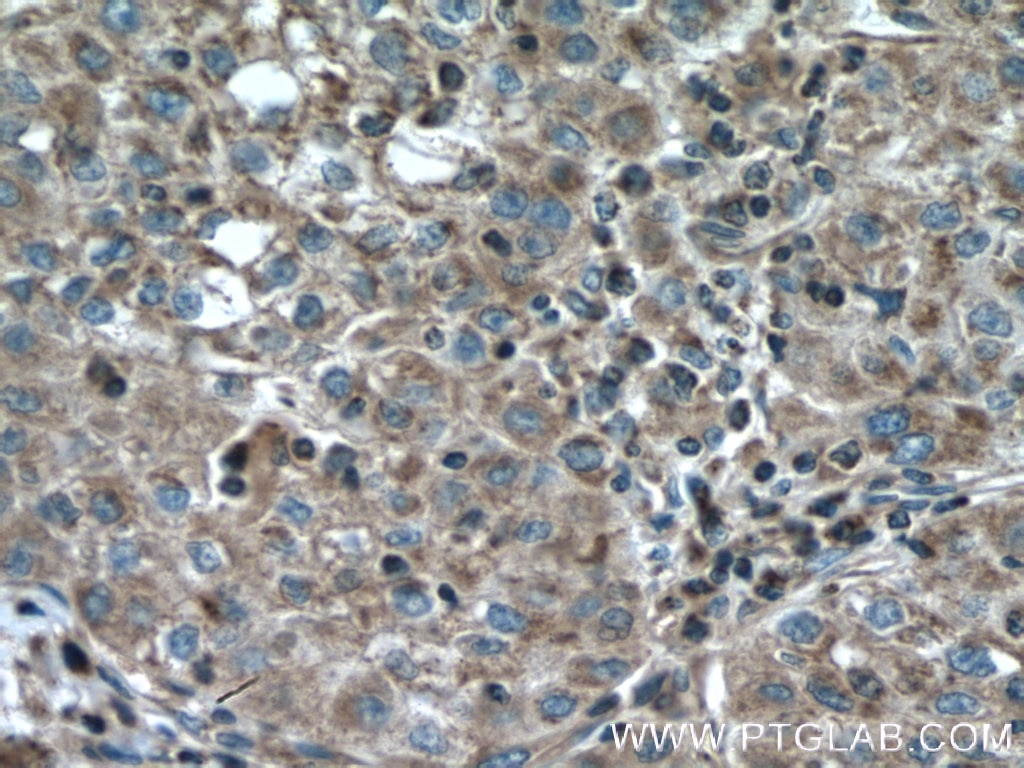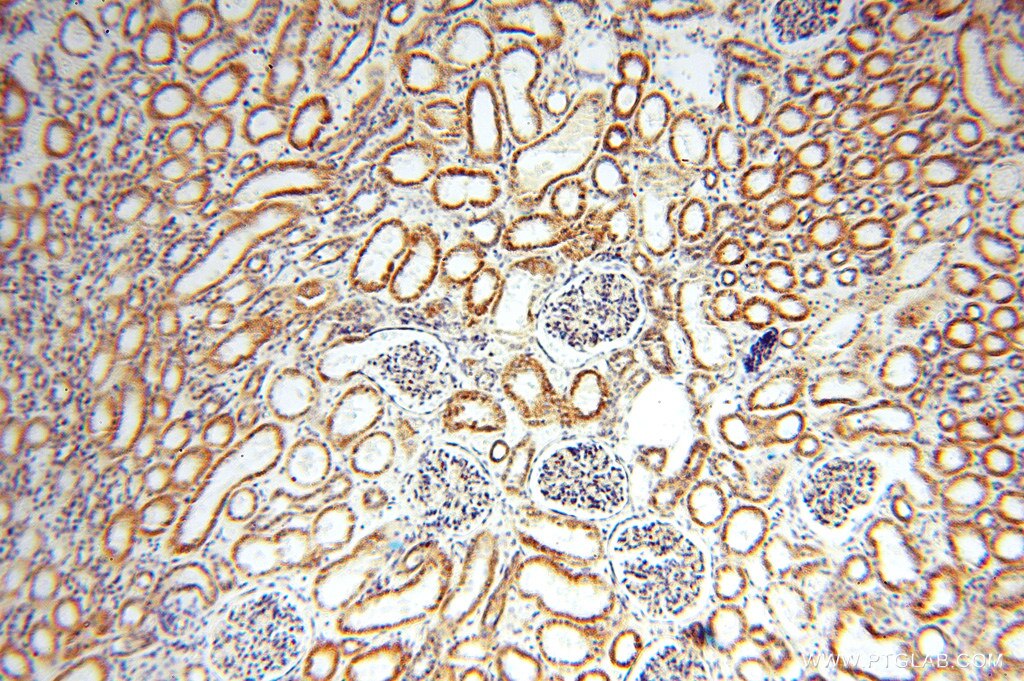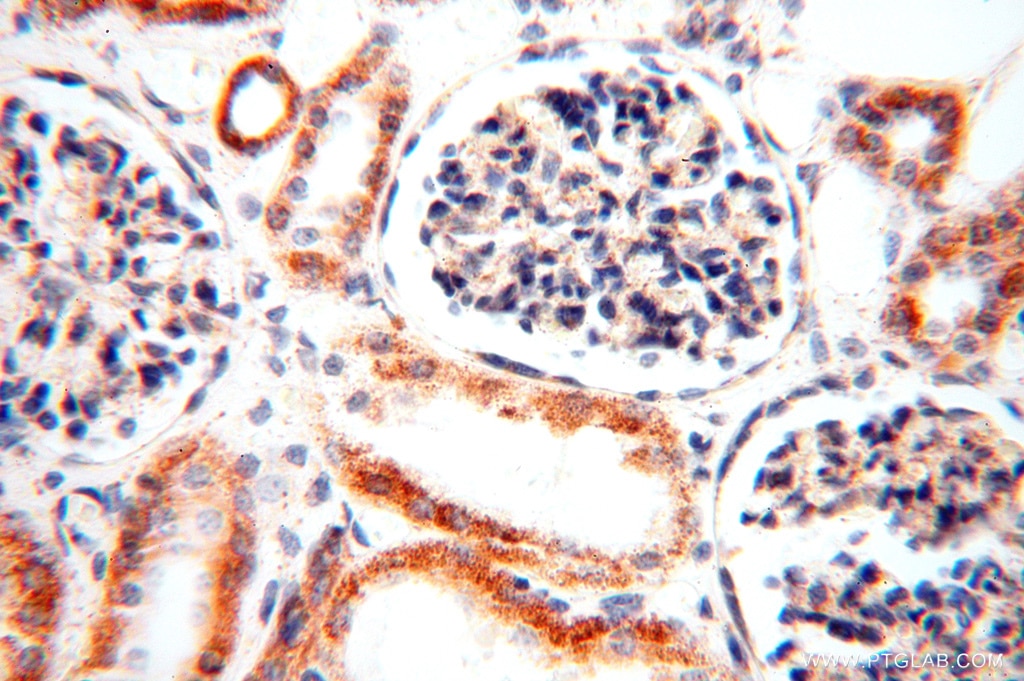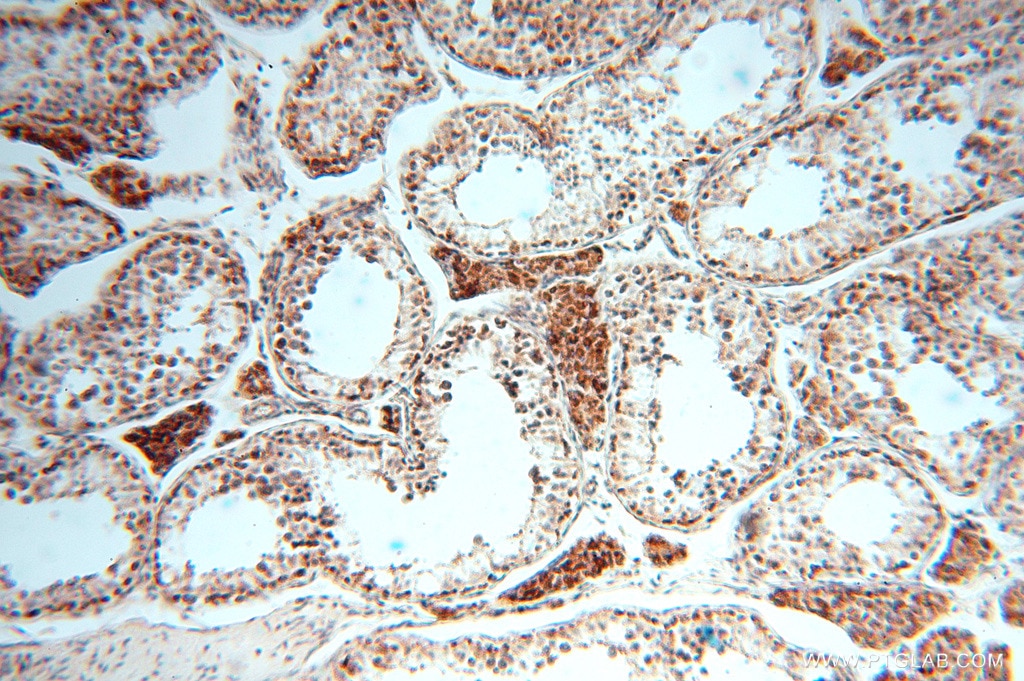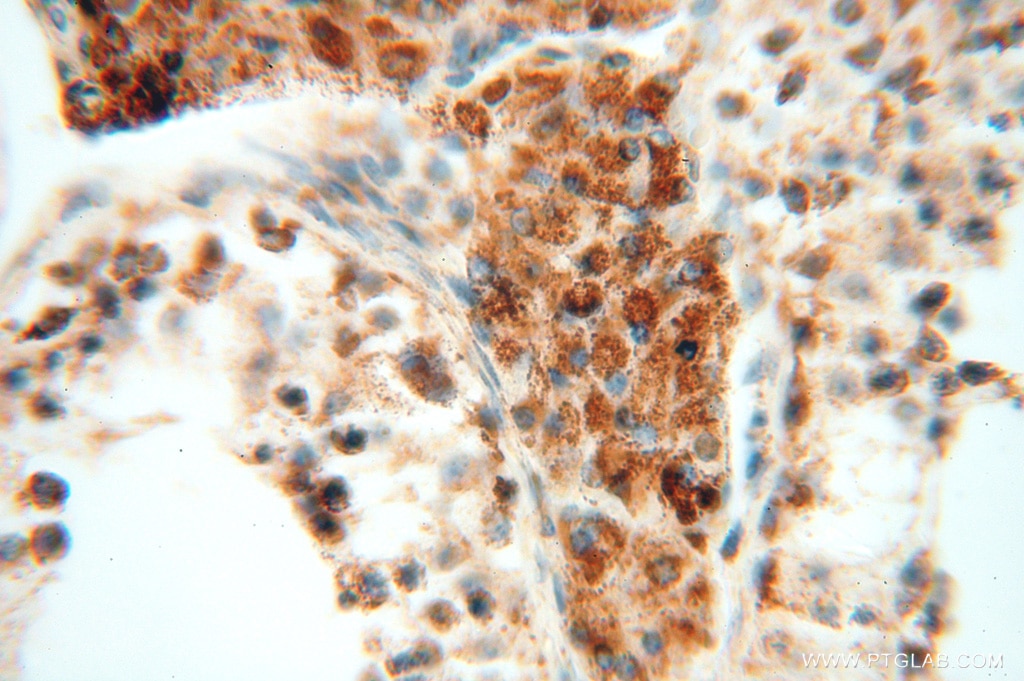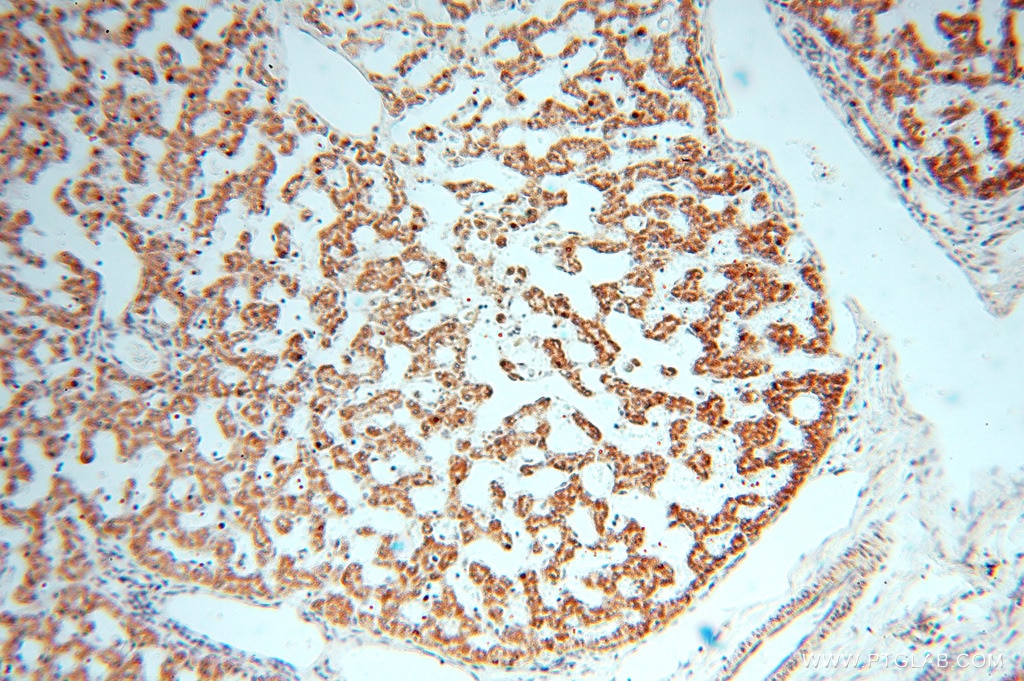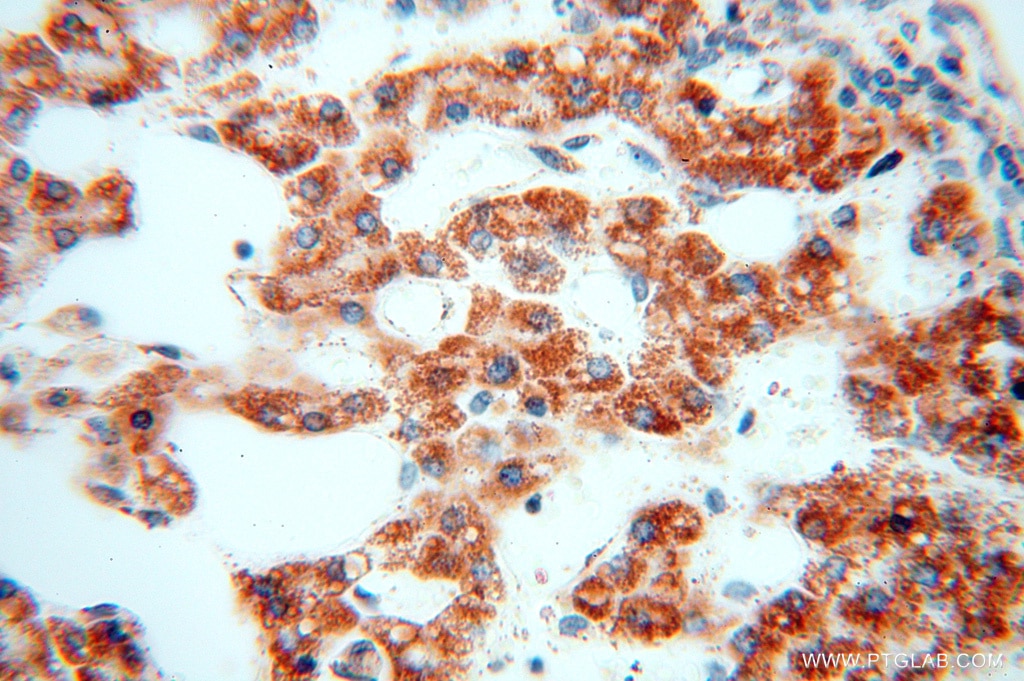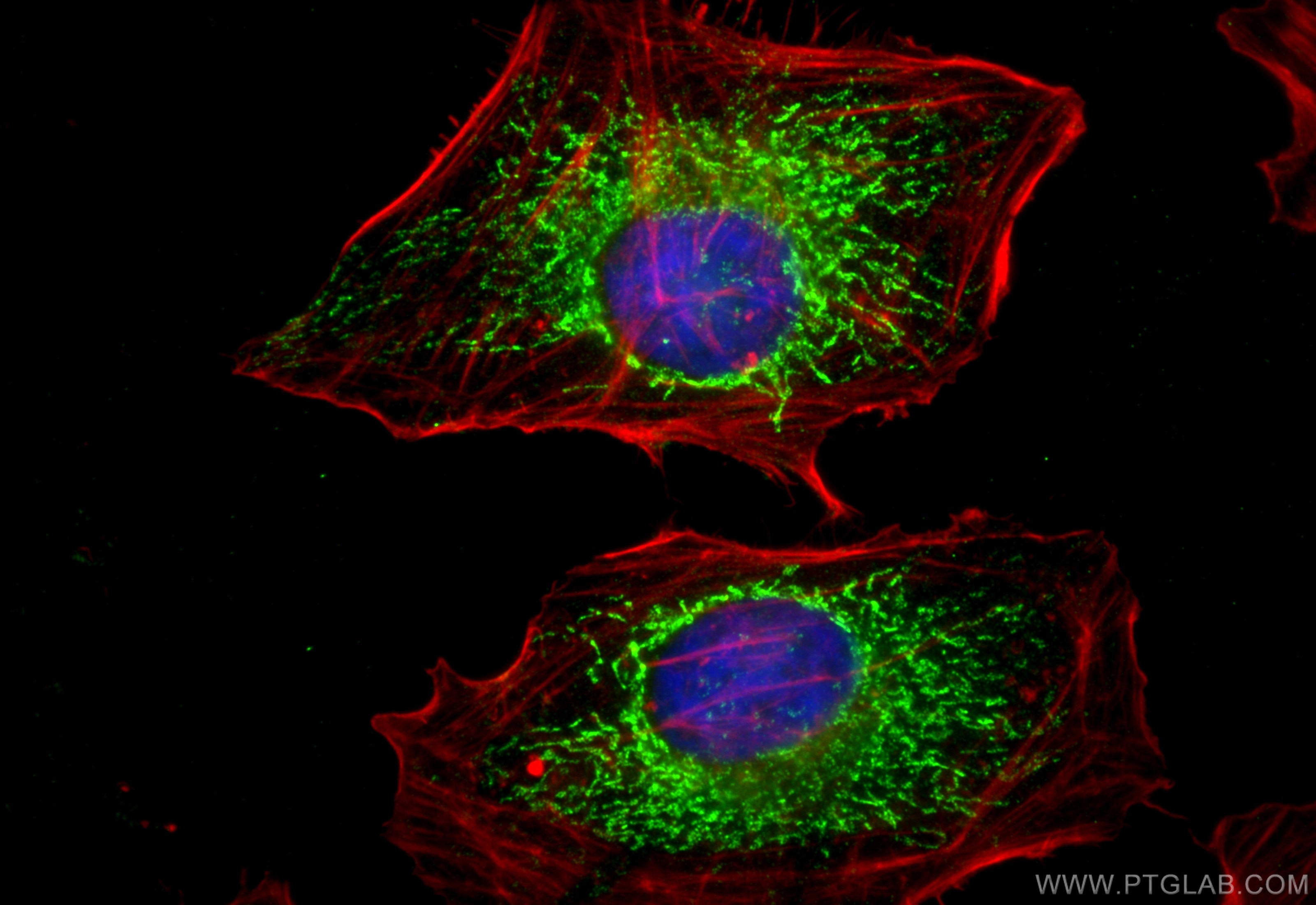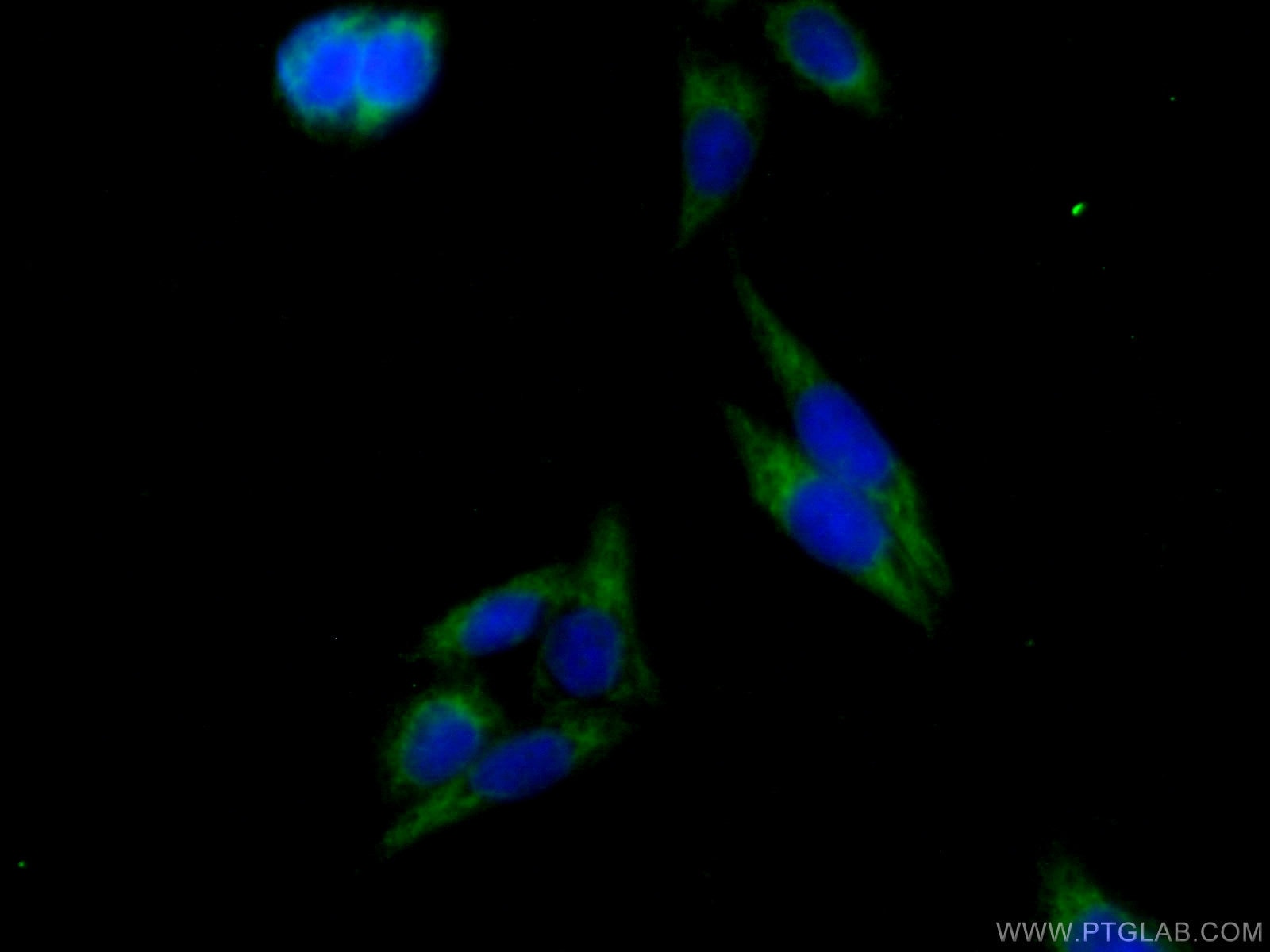Validation Data Gallery
Tested Applications
| Positive WB detected in | human placenta tissue, rat heart tissue, K-562 cells, mouse heart tissue |
| Positive IP detected in | mouse skeletal muscle tissue |
| Positive IHC detected in | human liver cancer tissue, human kidney tissue, human testis tissue, human liver tissue Note: suggested antigen retrieval with TE buffer pH 9.0; (*) Alternatively, antigen retrieval may be performed with citrate buffer pH 6.0 |
| Positive IF/ICC detected in | HeLa cells |
Recommended dilution
| Application | Dilution |
|---|---|
| Western Blot (WB) | WB : 1:1000-1:8000 |
| Immunoprecipitation (IP) | IP : 0.5-4.0 ug for 1.0-3.0 mg of total protein lysate |
| Immunohistochemistry (IHC) | IHC : 1:50-1:500 |
| Immunofluorescence (IF)/ICC | IF/ICC : 1:50-1:500 |
| It is recommended that this reagent should be titrated in each testing system to obtain optimal results. | |
| Sample-dependent, Check data in validation data gallery. | |
Published Applications
| KD/KO | See 4 publications below |
| WB | See 50 publications below |
| IHC | See 3 publications below |
| IF | See 3 publications below |
| CoIP | See 1 publications below |
Product Information
15698-1-AP targets CLPP in WB, IHC, IF/ICC, IP, CoIP, ELISA applications and shows reactivity with human, mouse, rat samples.
| Tested Reactivity | human, mouse, rat |
| Cited Reactivity | human, mouse, rat, chicken, zebrafish, goat |
| Host / Isotype | Rabbit / IgG |
| Class | Polyclonal |
| Type | Antibody |
| Immunogen |
CatNo: Ag8325 Product name: Recombinant human CLPP protein Source: e coli.-derived, PGEX-4T Tag: GST Domain: 1-277 aa of BC002956 Sequence: MWPGILVGGARVASCRYPALGPRLAAHFPAQRPPQRTLQNGLALQRCLHATATRALPLIPIVVEQTGRGERAYDIYSRLLRERIVCVMGPIDDSVASLVIAQLLFLQSESNKKPIHMYINSPGGVVTAGLAIYDTMQYILNPICTWCVGQAASMGSLLLAAGTPGMRHSLPNSRIMIHQPSGGARGQATDIAIQAEEIMKLKKQLYNIYAKHTKQSLQVIESAMERDRYMSPMEAQEFGILDKVLVHPPQDGEDEPTLVQKEPVEAAPAAEPVPAST 相同性解析による交差性が予測される生物種 |
| Full Name | ClpP caseinolytic peptidase, ATP-dependent, proteolytic subunit homolog (E. coli) |
| Calculated molecular weight | 30 kDa |
| Observed molecular weight | 26 kDa, 30 kDa |
| GenBank accession number | BC002956 |
| Gene Symbol | CLPP |
| Gene ID (NCBI) | 8192 |
| RRID | AB_2245115 |
| Conjugate | Unconjugated |
| Form | |
| Form | Liquid |
| Purification Method | Antigen affinity purification |
| UNIPROT ID | Q16740 |
| Storage Buffer | PBS with 0.02% sodium azide and 50% glycerol{{ptg:BufferTemp}}7.3 |
| Storage Conditions | Store at -20°C. Stable for one year after shipment. Aliquoting is unnecessary for -20oC storage. |
Background Information
CLPP is the putative ATP-dependent Clp protease proteolytic subunit and also named as endopeptidase Clp. It belongs to the peptidase S14 family. Clp cleaves peptides in various proteins in a process that requires ATP hydrolysis. It may be responsible for a fairly general and central housekeeping function rather than for the degradation of specific substrates. This protein has a transit peptide of 56 amino acid.
Protocols
| Product Specific Protocols | |
|---|---|
| IF protocol for CLPP antibody 15698-1-AP | Download protocol |
| IHC protocol for CLPP antibody 15698-1-AP | Download protocol |
| IP protocol for CLPP antibody 15698-1-AP | Download protocol |
| WB protocol for CLPP antibody 15698-1-AP | Download protocol |
| Standard Protocols | |
|---|---|
| Click here to view our Standard Protocols |
Publications
| Species | Application | Title |
|---|---|---|
Cell Metab Fibroblast Growth Factor 21 Drives Dynamics of Local and Systemic Stress Responses in Mitochondrial Myopathy with mtDNA Deletions. | ||
Cell Metab mTORC1 Regulates Mitochondrial Integrated Stress Response and Mitochondrial Myopathy Progression. | ||
Mol Cell The mitochondrial DNAJC co-chaperone TCAIM reduces α-ketoglutarate dehydrogenase protein levels to regulate metabolism
| ||
Cell Metab Proteolytic cleavage of opa1 stimulates mitochondrial inner membrane fusion and couples fusion to oxidative phosphorylation. | ||
Sci Adv Mitochondrial proteostasis stress in muscle drives a long-range protective response to alleviate dietary obesity independently of ATF4. | ||
Nat Commun Disuse-associated loss of the protease LONP1 in muscle impairs mitochondrial function and causes reduced skeletal muscle mass and strength. |

